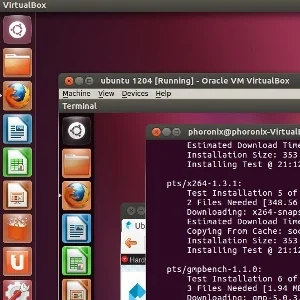VirtualBox 7.0 Released - Full VM Encryption Support, Direct3D Acceleration Using DXVK

VirtualBox 7.0 released today and now allows virtual machines to run fully encrypted -- including the encrypting of configuration logs and saved states. But for VirtualBox 7.0 this VM encryption support is only exposed via the command-line interface.
VirtualBox 7.0 also introduces a new 3D stack. This VirtualBox 3D support is based on DirectX 11 while Oracle indicates that it's making use of DXVK for non-Windows hosts (in particular: DXVK-Native), which means the Direct3D stack is ultimately running over Vulkan.
VirtualBox 7.0 also supports other big features like virtual IOMMU devices for Intel and AMD, virtual TPM 1.2 and 2.0 device support, EFI Secure Boot is finally wired up, various GUI enhancements, Vorbis is the default audio codec for audio recording with WebM containers while Opus is no longer used, initial support for automatic updating of VirtualBox Guest Additions for Linux guests, and many other changes. The UEFI SecureBoot and TPM support also now allows Windows 11 guests to work with VirtualBox 7.0. VirtualBox 7.0 also updates the Qt toolkit in use, improves accessibility of the UI, and has various fixes.
Downloads and more details on VirtualBox 7.0 via VirtualBox.org.
63 Comments

